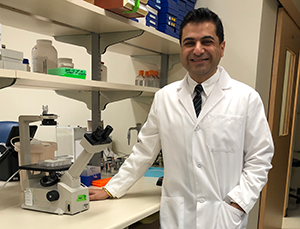
Vivek Verma, Ph.D.
Assistant Professor
Vivek Verma is an assistant professor at the Hormel Institute of the University of Minnesota. Verma Lab is interested in delineating the mechanisms of TCR mediated cell activation and immune cell exhaustion. This is achieved by using the pre-clinical disease models of chronic antigen stimulation such as cancers and viral/bacterial infections. Since, cellular metabolism has emerged as a major deciding-factor for immune cell function and exhaustion, using these models, lab is also interested in delineating the mechanisms that govern the substrate choice and metabolite shunting in immune cells. In fact, various cellular metabolites have been shown to interact with the cell signaling cascade and decide the functional aspects. Hence, one aspect of research in the lab is to understand the effects of cross talk between cell metabolites and cell signaling and finally its effect on memory, exhaustion and effector functions in immune cells.
Verma lab is also interested to understand the role of immune checkpoints (PD1/CTLA4/LAG-3) in limiting the immune response to cancers and to optimize the use of checkpoint blockers (anti-PD1/CTLA4) and immune-agonists (anti-OX40/GITR) for best therapeutic outcomes. Moreover, we want to decipher the mechanisms of immune resistance to various immune modulators and to devise the strategies to reverse this resistance. The lab seeks to answer these questions by using various in-vivo and in-vitro models of brain, lung and melanoma cancers.
Pharmacological enhancement of CD8 T cell effector function using TEPP46. Read more here.
Verma Publications
Complete list of Published Work in MyBibliography
https://www.ncbi.nlm.nih.gov/myncbi/10e3dniOfhp56/bibliography/public/
- Farsani SSM and Verma V (2023) Lactate mediated metabolic crosstalk between cancer and immune cells and its therapeutic implications. Front. Oncol. 13:1175532. doi: 10.3389/fonc.2023.1175532. https://pubmed.ncbi.nlm.nih.gov/37234972/
- Puth S*, Verma V*, Hong SH, Tan W, Lee SE, Rhee JH. An all-in-one adjuvanted therapeutic cancer vaccine targeting dendritic cell cytosol induces long-lived tumor suppression through NLRC4 inflammasome activation. Biomaterials, 2022, 121542, ISSN 0142-9612. *Equal contribution. https://doi.org/10.1016/j.biomaterials.2022.121542
- Sautès-Fridman C, Dimberg A, Verma V. Tertiary Lymphoid Structures: From Basic Biology to Translational Impact in Cancer. Frontiers in Immunology. 2022. March 13. https://doi.org/10.3389/fimmu.2022.870862
- Nandre R*, Verma V*, Patil V, Yang X, Gaur P, Ramlaoui Z, Shobaki N, Andersen MH, Pedersen A, Zocca M-H, Mkrtichyan M, Gupta S, Khleif SN. (2022). IDO-vaccine ablates immune suppressive myeloid population and enhances anti-tumor effects independent of IDO status of tumor cells. Cancer Immunology Research. *Equal contribution. https://doi.org/10.1158/2326-6066.CIR-21-0457
- Verma V, Jafarzadeh N, Boi S, Kundu S, Jiang Z, Fan Y, Nandre R, Zeng P, Alolaqi F, Ahmad S, Gaur P, Barry ST, Valge-Archer V, Smith PD, Banchereau J, Mkrtichyan M, Youngblood B, Rodriguez PC, Gupta S, Khleif SN. (2021). MEK inhibition reprograms CD8+ lymphocytes into memory stem cell with potent anti-tumor effects. Nature Immunology.
(doi.org/10.1038/s41590-020-00818-9).
https://www.nature.com/articles/s41590-020-00818-9
This research has been featured in:
(1) Cancer Discovery (https://cancerdiscovery.aacrjournals.org/content/early/2020/12/03/2159-8290.CD-RW2020-176);
(2) ACIR (https://acir.org/weekly-digests/2020/december/mek-inhibition-induces-stem-cell-memory-in-cd8-t-cells); - Zhang X, de Oliveira Andrade F, Zhang H, Cruz I, Clarke R, Gaur G, Verma V, Hilakivi-Clarke L. (2020). Maternal obesity increases offspring’s mammary cancer recurrence and impairs tumor immune response [published online ahead of print, 2020 Jun 1]. Endocr Relat Cancer. 2020; ERC-20-0065.R2. doi:10.1530/ERC-20-0065. https://pubmed.ncbi.nlm.nih.gov/32580156/
- Verma V, Shrimali RK, Ahmad S, Dai W, Wang H, Lu S, Nandre R, Gaur P, Lopez J, Sade-Feldman M, Yizhak K, Bjorgaard SL, Flaherty KT, Wargo JA, Boland GM, Sullivan RJ, Getz G, Hammond SA, Tan M, Qi J, Wong P, Merghoub T, Wolchok J, Hacohen N, Janik JE, Mkrtichyan M, Gupta S, Khleif SN. (2019). PD-1 blockade in subprimed CD8 cells induces dysfunctional PD-1+CD38hi cells and anti-PD-1 resistance. Nature Immunology (20); 1231-1243.
(DOI: 10.1038/s41590-019-0441-y). https://www.ncbi.nlm.nih.gov/pubmed/31358999
This research has been featured in ACIR (https://acir.org/weekly-digests/2019/august/the-timing-of-priming-and-pd-1-blockade) - Ahmad S, Webb M, Verma V, Kumari A, Ananth S, Gaur P, Abu-Eid R, Mkrtichyan M, Janik J, Khleif SN. IL-6 regulates the balance between Th17 and Tregs through modulation of PI3K isoforms signaling, providing new targets for immunotherapy (Under review)
Hwang HS, Puth S, Tan W, Verma V, Jeong K, Lee SE, Rhee JH (2018). More robust gut immune responses induced by combining intranasal and sublingual routes for prime-boost immunization. Hum Vaccin Immunother. 21:1-20.
DOI:10.1080/21645515.2018.1472185. (https://www.ncbi.nlm.nih.gov/pubmed/29781755) - Shrimali RK, Ahmad S, Verma V, Zeng P, Ananth S, Gaur P, Gittelman RM, Yusko E, Sanders C, Robins H, Hammond SA, Janik JE, Mkrtichyan M, Gupta S, Khleif SN (2017). Concurrent PD-1 blockade negates the effects of OX40 agonist antibody in combination immunotherapy through inducing T-cell apoptosis. Cancer Immunological Research. 5(9):755-766. doi: 10.1158/2326-6066.CIR-17-0292.
https://www.ncbi.nlm.nih.gov/pubmed/?term=28848055 - Ahmad S, Eid RA, Shrimali RK, Webb M, Verma V, Doroodchi A, Berrong Z, Samara RN, Rodriguez PC, Mkrtichyan M, Khleif SN (2017). Differential PI3Kδ signaling in CD4+ T cell subsets enables selective targeting of T regulatory cells to enhance cancer immunotherapy. Cancer Research. 77(8):1892-1904. Doi: 10.1158/0008-5472.CAN-16-1839. https://www.ncbi.nlm.nih.gov/pubmed/?term=28108509.
- Verma V, Kim Y, Lee MC, Lee JT, Cho S, Park IK, Min JJ, Lee JJ, Lee SE, Rhee JH (2016). Activated dendritic cells delivered in tissue compatible biomatrices induce in-situ anti-tumor CTL responses leading to tumor regression. Oncotarget. 7(26):39894-39906.
Doi: 10.18632/oncotarget.9529. (http://www.ncbi.nlm.nih.gov/pubmed/27223090). - Verma V, Tan W, Puth S, Cho KO, Lee SE, Rhee JH (2016). Norovirus (NoV) specific protective immune responses induced by recombinant P dimer vaccine are enhanced by the mucosal adjuvant FlaB. J Transl Med. 2016 May 17; 14(1):135.
Doi: 10.1186/s12967-016-0899-4. (http://www.ncbi.nlm.nih.gov/pubmed/27184355) - Lee SE, Hong SH, Verma V, Lee YS, Duong T-MD, Jeong K, Uthaman S, Sung YC, Lee J-T, Park I-K, Min JJ, Rhee JH (2015). Flagellin is a strong vaginal adjuvant of a therapeutic vaccine for genital cancer. OncoImmunology. 24;5(2):e1081328.
Doi 10.1080/2162402X.2015.1081328. (https://www.ncbi.nlm.nih.gov/pubmed/27057462 - Saha S, Uttam V, Verma V (2015). u-CARE: user-friendly Comprehensive Antibiotic resistance Repository of Escherichia coli. Journal of clinical pathology, 68(8):648-51.
(https://jcp.bmj.com/content/68/8/648) - Tan W, Verma V, Jeong K, Kim SY, Jung C, Lee SE and Rhee JH (2014). Molecular characterization of vulnibactin biosynthesis in Vibrio vulnificus indicates the existence of an alternative siderophore. Front. Microbiol. 24,5:1.
(https://www.ncbi.nlm.nih.gov/pubmed/24478763) - Nguyen CT, Hong SH, Ung TT, Verma V, Kim SY, Rhee JH, Lee SE (2013). Intranasal immunization with a flagellin-adjuvanted peptide anticancer vaccine prevents tumor development by enhancing specific cytotoxic T lymphocyte response in a mouse model. Clin Exp Vaccine Res 2, 128-134. (http://www.ncbi.nlm.nih.gov/pubmed/23858404)
- Saha BS, Verma V (2013). In Silico analysis of Escherichia coli polyphosphate kinase (PPK) as a novel antimicrobial drug target and its high throughput virtual screening against PubChem library. Bioinformation 9(10), 518-523.
(http://www.bioinformation.net/009/97320630009518.pdf). - Verma V and Chhibber S (2012) Combination Therapy: Types, Procedures and Outcomes. In: Advances in Medicine and Biology. Ed: Berhardt LV. Volume 48, 225-244. (Book chapter).
- Verma V, Harjai K, Chhibber S (2010). Structural changes induced by lytic bacteriophage makes ciprofloxacin effective against older biofilm of Klebsiella pneumoniae. Biofouling, 26, 729-737. (http://www.ncbi.nlm.nih.gov/pubmed/20711894).
- Verma V, Harjai K, Chhibber S (2009). Restricting ciprofloxacin induced resistant variant formation in biofilm of Klebsiella pneumoniae B5005 by complementary bacteriophage treatment. J Antimicrob Chemotherap, 64, 1212-1218.
(http://www.ncbi.nlm.nih.gov/pubmed/19808232) - Verma V, Harjai K, Chhibber S (2009). Characterization of a T7-Like Lytic Bacteriophage of Klebsiella pneumoniae B5055: A Potential Therapeutic Agent. Curr Microbiol, 59, 274-281.
(http://www.ncbi.nlm.nih.gov/pubmed/19484297) - Verma V, Sehgal R, Tahlan AK, Sood DK, Dogar V (2009). Feasibility of use of single dose immunization regime in Antibody Induction Method for testing potency of tetanus component in DTP group of vaccines and comparison of validated ELISA with TNT for antibody titration. Am J Biomed Sci, 1(2), 143-156.(http://www.nwpii.com/ajbms/papers/AJBMS_2009_2_06.pdf)
- Bedi MS, Verma V, Chhibber S (2009). Amoxicillin and specific bacteriophage can be used together for eradication of biofilm of Klebsiella pneumoniae B5055. World J of Microbiol Biotech, 25(7), 1145-1151.
(http://link.springer.com/content/pdf/10.1007%2Fs11274-009-9991-8.pdf).
Guest Editor:
Cancer Reports
(https://onlinelibrary.wiley.com/page/journal/25738348/homepage/call-for-papers-mar-2020)
Frontiers Immunology
(https://www.frontiersin.org/research-topics/15193)
More publications can be found here:
https://scholar.google.com/citations?user=OqGus3AAAAAJ&hl=en
Lab in News
Take a look at recent news coverage of The Hormel Institute:

The Hormel Institute Scientist Receives American Cancer Society Grant to Study Metabolic Fitness in Immune Cells for Improving Cancer Immunotherapy
- myaustinminnesota.com – Feb. 16, 23 – Hormel Institute Professor to receive grant from American Cancer Society
- kaaltv.com – Feb. 16, 23 – Hormel Institute scientist receives American Cancer Society grant to help improve approaches to cancer immunotherapy treatment
- austindailyherald.com – Feb. 16, 23 – Institute scientist receives American Cancer Society Grant to study improved cancer immunotherapy
Personnel
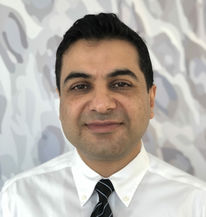
Dr. Vivek Verma
Principal Investigator
Dr. Vivek Verma is an assistant professor at The Hormel Institute of the University of Minnesota. Dr. Verma did his M.S. in microbiology from the Central Research Institute at Kasauli in Himachal Pradesh and he earned his Ph.D. from Punjab University, located in the pristine city of Chandigarh in northern part of India. Dr. Verma did his postdoctoral studies in cancer biology and innate immune system, first at Chonnam National University in South Korea followed by Georgia Cancer Center at Augusta, USA. Following his postdoctoral research, Dr. Verma joined Georgetown Lombardi Comprehensive Center as an assistant professor on research tract where he studied the mechanisms to enhance the anti-tumor responses using immune modulatory antibodies and small molecule inhibitors.
In his free time Dr. Verma likes to go running or watch Hollywood horror movies.
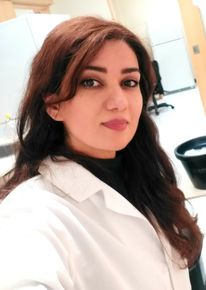
Dr. Seyedeh Sahar Mortazavi Farsani (Sahar)
Postdoctoral Research Associate
Sahar did her PhD at Tarbiat Modares University in Tehran, Iran. The main field of her Ph.D. research was cancer and hematopoietic stem cells differentiation. As a postdoctoral fellow in The Verma Lab at the Hormel Institute Sahar is studying the role of metabolism in regulating the effector functions in immune cells with a special focus on CD8 T cells. She is also interested in deciphering the resistance mechanisms that render the immune therapies ineffective in brain tumors. When she is not in the lab doing experiments, Sahar likes to play volleyball, swim, paint and maybe sleep.
Welcome Sahar!
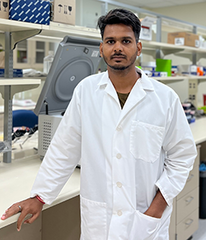
Soni Jignesh Mohanbhai
Postdoctoral Associate
Hello! My name is Soni Jignesh Mohanbhai. My research background is in biological sciences (inflammatory diseases) and completed my PhD at INST-IISER-Mohali, India. My doctoral research focused on understanding epigenetic role of melatonin in regulation of inflammation in macrophages and developing nanocarriers for targeted drug delivery, particularly in the context of Inflammatory Bowel Disease. Currently, I am a postdoctoral associate at The Hormel Institute in Austin (Minnesota, USA), working in Dr. Verma’s lab where I am investigating the role of mitochondrial metabolism in regulating the effector functions of immune cells, with a particular emphasis on CAR-T cells. I am deeply intrigued by understanding the mechanisms of mitochondrial exhaustion in tumor microenvironment that hinder the effectiveness of immune therapies (CAR-T cells) in solid tumors.
Outside of my research endeavors, I find joy in engaging in various activities. I enjoy playing volleyball, exercise, and understanding myself in solitude (meditation). And of course, finding time to relax and get some well-deserved sleep is also important to me.
Welcome Soni!
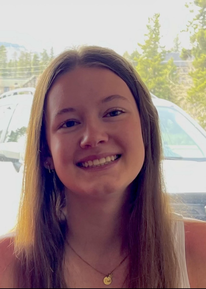
Ms Lynsey Knudson
Former Intern
Verma lab is delighted to welcome Ms. Lynsey Knudson as a SURE intern. Lynsey is a junior neuroscience major with a minor in forensic science at Hamline University, Minnesota. After graduating she plans to pursue a masters in psychometrics. In her free time Lynsey enjoys listening to music, going on walks, baking, and watching movies with her sister. Lab hopes to have some very tasty cakes during her stay with us and of course hopes she will learn a lot of science as well.
Welcome Lynsey!
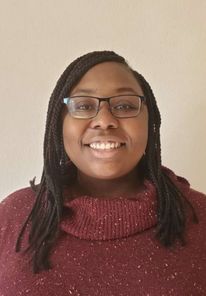
Christen Gibson
Former Intern
We are delighted to host Christen Gibson for the summer intern program. Christen is a senior chemistry major with a minor in public health at Gustavus Adolphus College. After graduating she plans on pursuing either a masters degree or a PhD in organic chemistry. In her free time she likes to crochet, paint, and ride her bike.
Welcome Christen!
Lab Pics
June was the month of Cancer Immunotherapy and we celebrate each day advancing the cures and by being thankful. Psst….we still think CD8 T cells are the best.
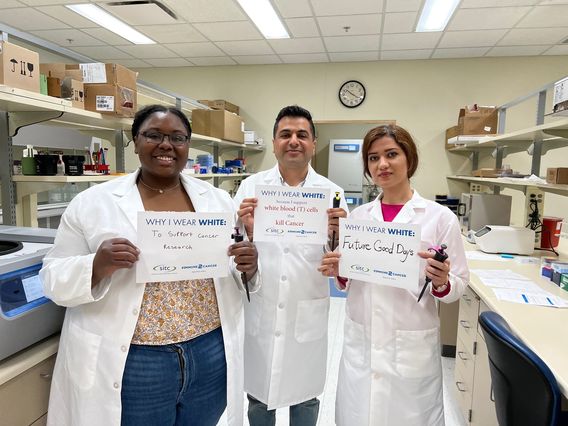
When Science meets its future. It was such fun to host and interact with budding scientists and answer all those difficult questions.
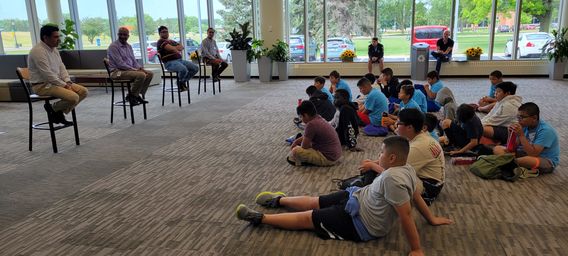
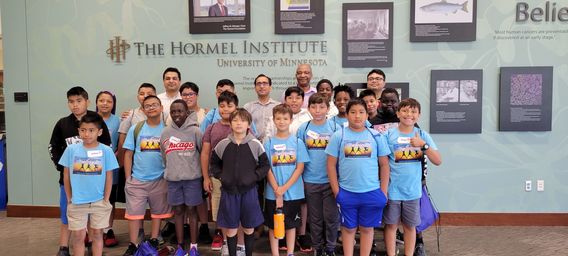
Work Hard and party harder. We celebrated the 80th anniversary of the Hormel Institute with some great music, wonderful people and a lot of food. Interaction with SURE interns reassured that the future of research is bright.
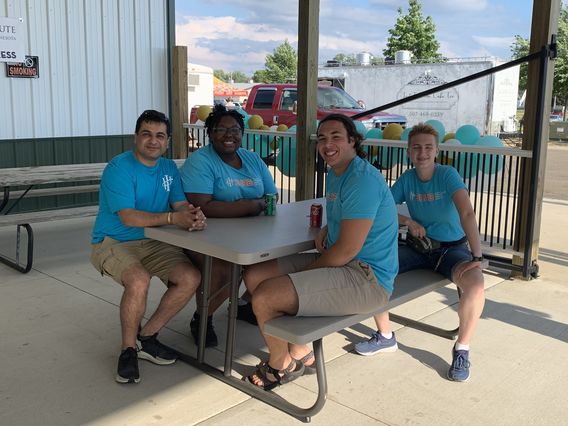
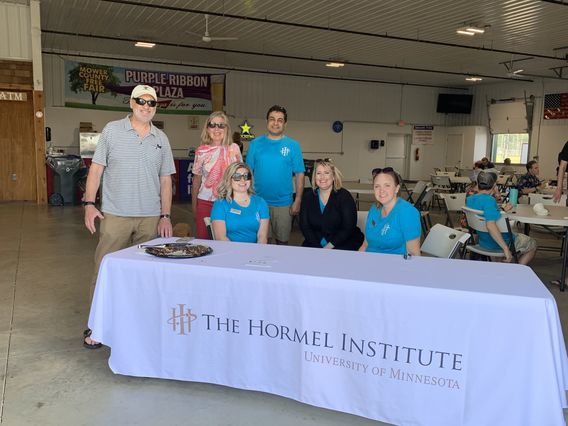
Contact Vivek Verma, PhD
-
Lab# 128,The Hormel Institute,801 16th Ave NE,Austin, MN 55912, U.S.A.Phone (o): 507-437-9615(lab): 507-355-5232
- vermav@umn.edu
